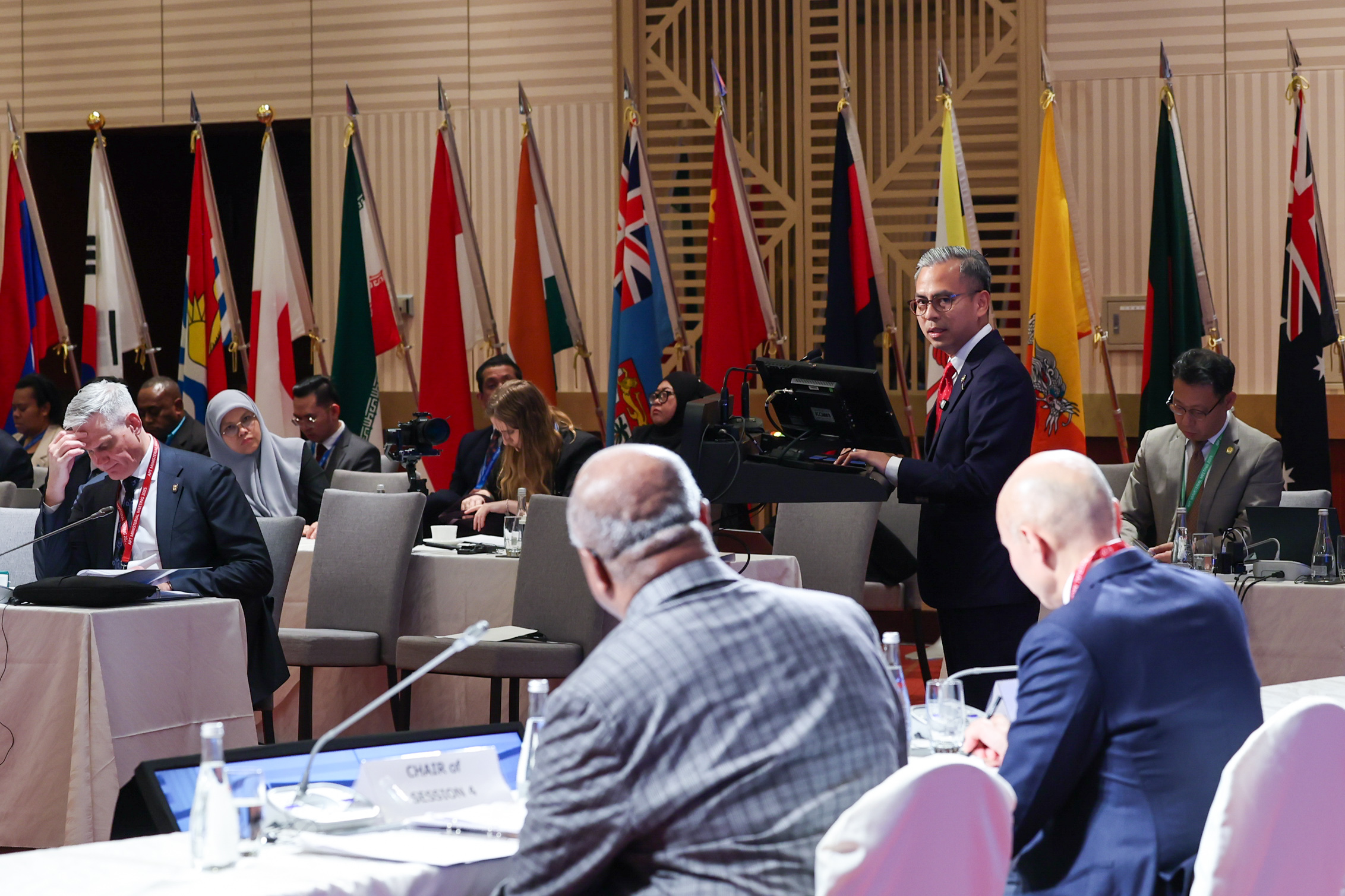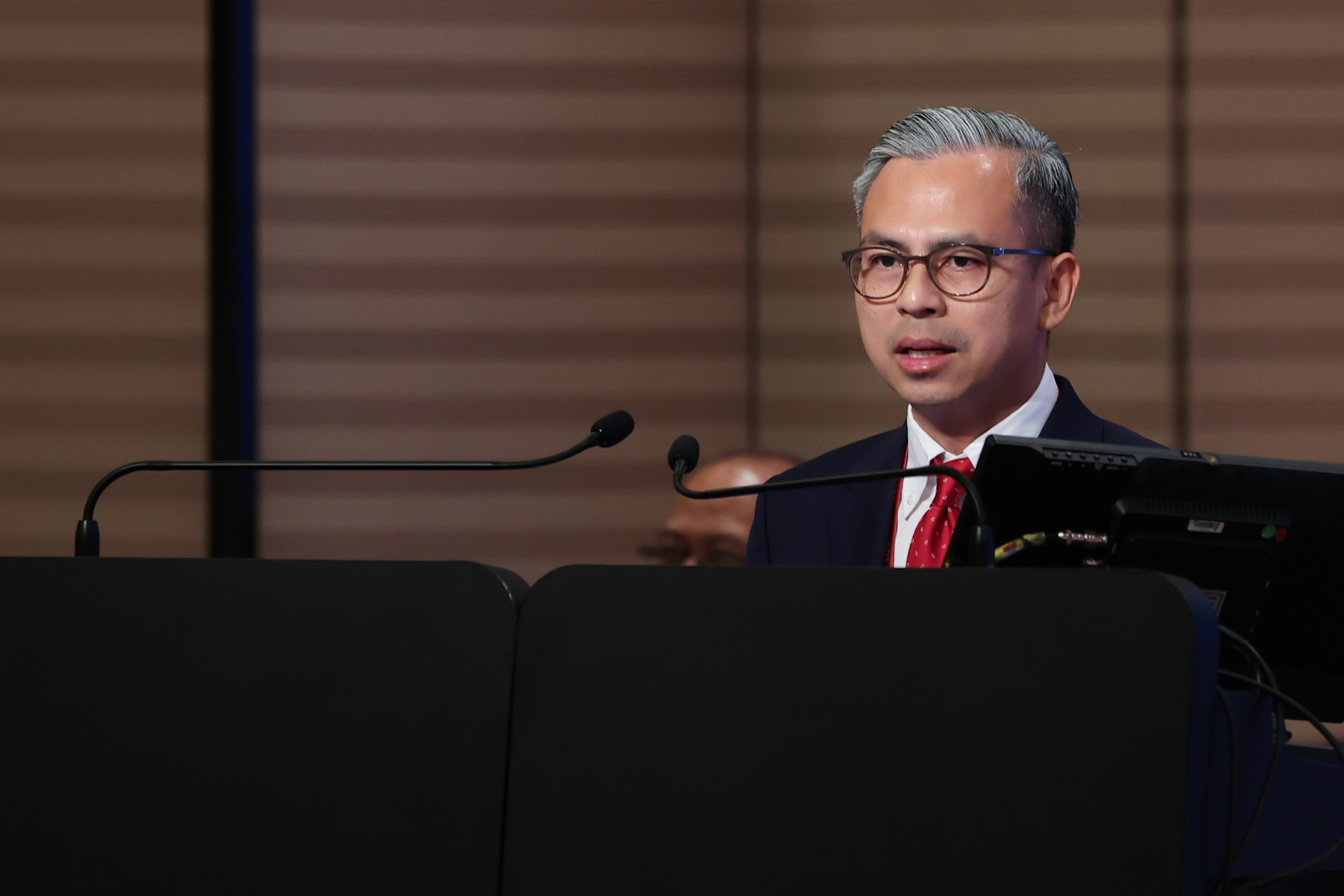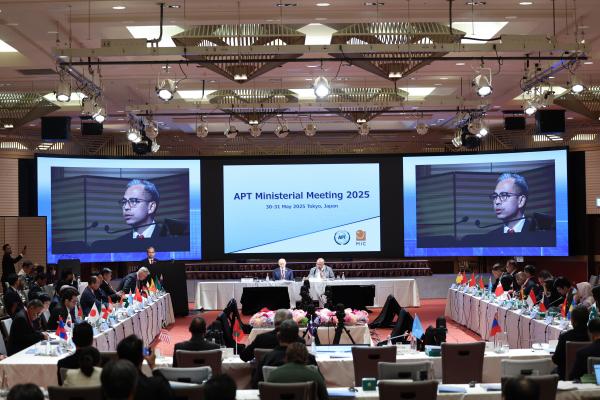Communications Minister Datuk Fahmi Fadzil today reaffirmed Malaysia’s strong commitment to safeguarding its digital landscape through comprehensive national and regional initiatives aimed at promoting internet safety and responsible online behaviour.
Speaking at The Asia-Pacific Telecommunity Ministerial Meeting in Tokyo, Japan today, Fahmi stressed that while digital technologies have revolutionised communication, commerce, and connectivity, they have also introduced new and evolving risks that require immediate attention.
“Ensuring a secure and trusted digital environment is no longer optional. It is essential to protect national interests, economic stability, and the well-being of our citizens,” he said in a statement.
Fahmi said Malaysia has launched the Internet Safety Campaign Roadshow, a nationwide initiative aimed at raising public awareness through interactive forums and engagement sessions with students and communities.
“The campaign focuses on five critical issues; online scams, online gambling, cyberbullying, child sexual abuse material (CSAM), and the misuse of social media by children under 13, while encouraging greater parental supervision,” he said.

The minister added that, to reinforce platform accountability, Malaysia has rolled out a Regulatory Framework for Internet Messaging and Social Media Service Providers, which requires all platforms with eight million or more users in Malaysia to apply for an Applications Service Provider Class Licence (“ASP (C)”) under the Communications and Multimedia Act 1998.
He said the framework, which took effect in January 2025, ensures that major platforms adhere to national laws and take greater responsibility for managing harmful content.
Complementing the framework is the newly released Code of Conduct (Best Practices) for these providers, issued on 20 December 2024.
Fahmi said the code sets ethical standards and encourages platforms like WhatsApp, Facebook, Instagram, X (formerly Twitter), and TikTok to enhance content moderation and combat harmful narratives online.
“We are responding to growing concerns about misinformation and online threats by demanding better standards and transparency from platform providers,” he said.

Fahmi said that as the Chair of ASEAN 2025, Malaysia has taken its advocacy a step further by spearheading the Kuala Lumpur Declaration on the Safe and Responsible Use of Social Media Platforms for ASEAN.
He said the declaration was endorsed at the 17th Conference of ASEAN Ministers Responsible for Information (AMRI) on 7th May 2025, and is expected to be formally adopted at the 47th ASEAN Summit in October.
“Through this Declaration, ASEAN further strengthens its collective efforts to promote responsible online behaviour among its citizens and to build a people-centred, digitally resilient community,” he said.
The minister said, Malaysia is also proposing the development of an ASEAN Toolkit for Online Safety, aimed at consolidating best practices and practical resources to address region-specific challenges such as misinformation and online exploitation.
“The toolkit will serve as a collaborative guide to strengthen our regional capabilities in addressing fake news, misinformation, disinformation, and malinformation, all of which contribute to online harms and exploitation across the region, ensuring that all ASEAN Member States benefit from shared knowledge and experiences,” Fahmi added.
He said that on the domestic front, in tackling disinformation, the government established Sebenarnya.my, a fact-checking portal with an average of 2.2 million monthly hits.
He added, to enhance accessibility, the portal recently introduced the AIFA chatbot, available on WhatsApp and the web.
“As of 31 March 2025, AIFA has processed over 84,000 messages, averaging 1,338 messages daily, underscoring public demand for accurate and trustworthy information.” he said.
In closing, Fahmi reiterated Malaysia’s dedication to fostering a secure, inclusive, and trusted digital ecosystem through regional cooperation and mutual trust.
“Through collaboration and continuous capacity-building, we can ensure that no one is left behind in the digital age,” he concluded.


